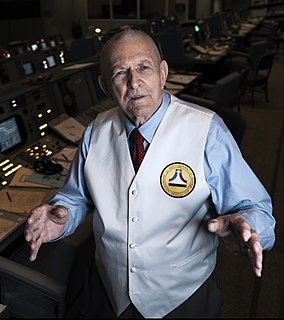A Quote by Atul Gawande
Checklists turn out...to be among the basic tools of the quality and productivity revolution in aviation, engineering, construction - in virtually every field combining high risk and complexity. Checklists seem lowly and simplistic, but they help fill in for the gaps in our brains and between our brains.
Related Quotes
I think that human beings have gotten as far as we've gotten because of our adaptability, our ability to adapt, and our ability to dovetail our technologies - our brains to our tools. With the Industrial Revolution, we transcended the limits of our muscles. With the digital revolution, we transcend the limits of our minds.
Good checklists, on the other hand are precise. They are efficient, to the point, and easy to use even in the most difficult situations. They do not try to spell out everything--a checklist cannot fly a plane. Instead, they provide reminders of only the most critical and important steps--the ones that even the highly skilled professional using them could miss. Good checklists are, above all, practical.
There is always this interesting relationship we have with technology. When we invented writing Socrates used to say it was going to rot our brains because we were going to write everything down and not have to remember anything, and so it would atrophy our brains. So there has always been this human drive on the one hand to create tools, to create technologies to overcome our boundaries, but then there is always this reservation, and this fear that say these technologies are somehow unnatural and it is against nature to partake in them.
My mother used to say when we were children, 'When a boy gets a stick in his hand, his brains run out the other end of it.' Power is a stick in the hand, and I have never heard of anybody who wielded a very big stick of power whose brains did not run out the other end. As a nation, our brains are running out the other end of our power right now.
Many quantum physics are realizing or hypothesizing that consciousness is not a byproduct of evolution as has been suggested. Or for that matter, an expression of our brains, although it expresses itself through our brains. But consciousness is the common ground of existence that ultimately differentiates into space, time, energy, information and matter. And the same consciousness is responsible for our thoughts, for our emotions and feelings, for our behaviors, for our personal relationships, for our social interactions, for the environments that we find ourselves in, and for our biology.


































